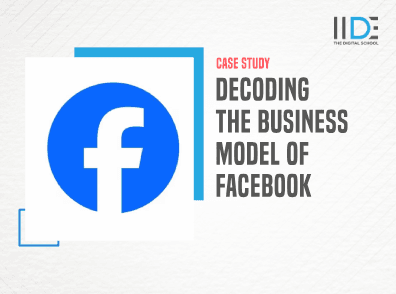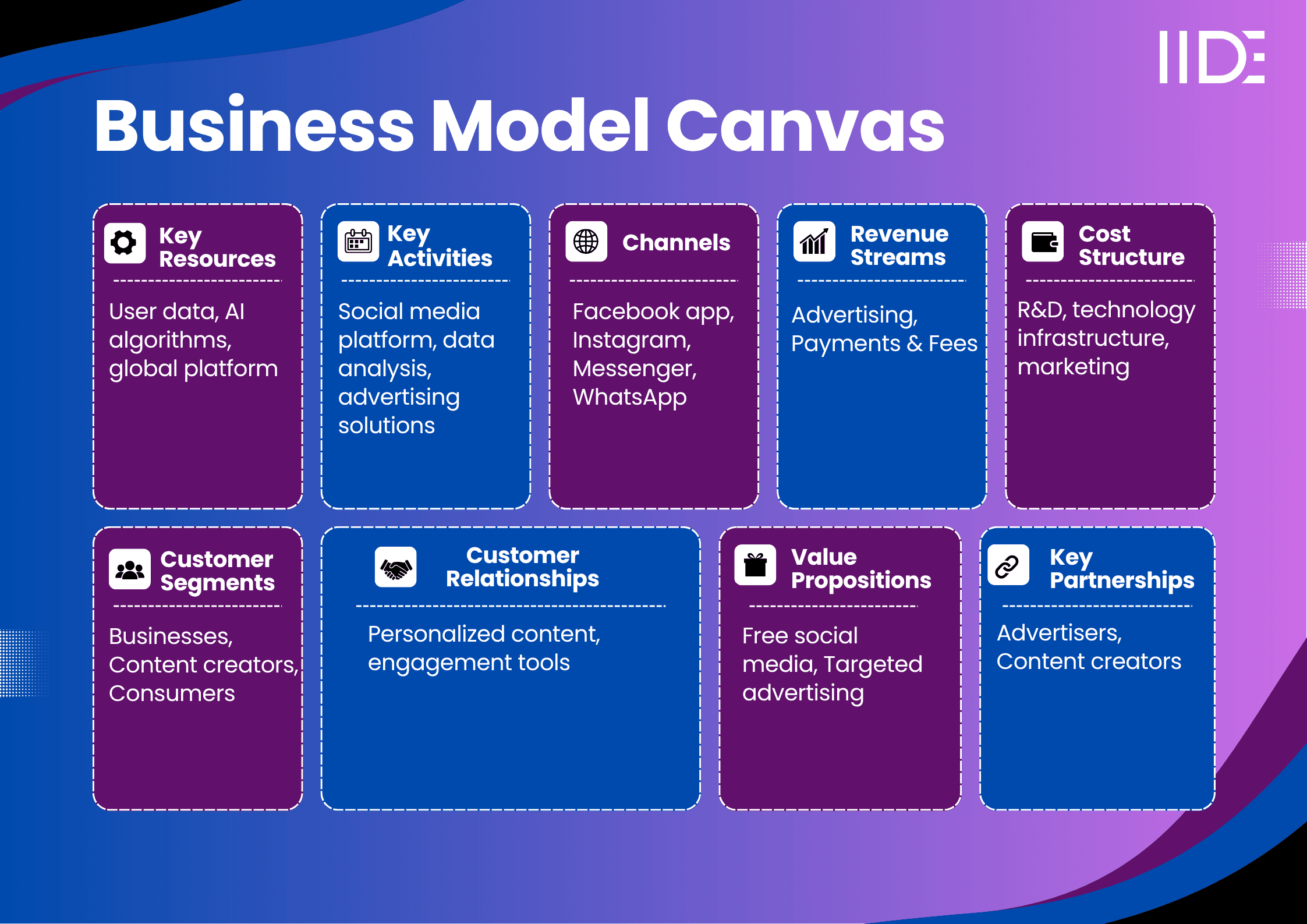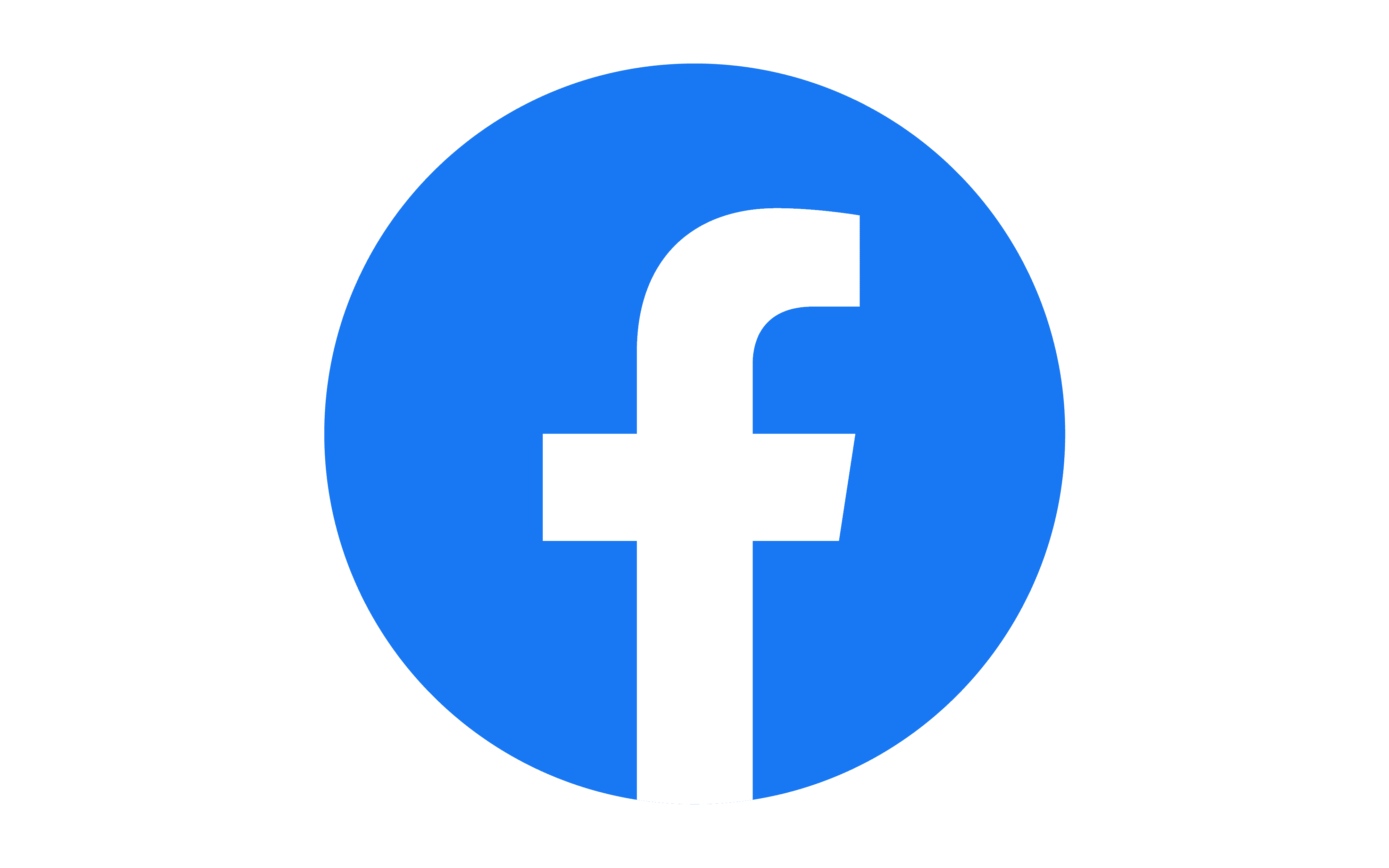
Updated on Aug 12, 2025
Share on:
About Facebook
Founded in 2004 by Mark Zuckerberg, Facebook started as a social network for college students and rapidly expanded to a global platform for billions of users. Its unique selling proposition lies in its ability to gather vast amounts of user data and use it to target advertisements with incredible precision.
As of 2023, Facebook, under its parent company Meta, generates more than $115 billion in revenue, with a user base of over 2.9 billion active monthly users. The company is known for its diverse suite of social platforms, including Instagram, WhatsApp, and Messenger, which further amplify its reach and advertising potential.
Customer experience on Facebook focuses on engagement, community building, and access to relevant content, making it an essential tool for businesses and consumers alike. Its secret to success is its unparalleled advertising ecosystem, built on the vast trove of data it collects from its massive user base.
| Feature | Details |
|---|---|
| Founded | 2004 |
| Founder | Mark Zuckerberg |
| Headquarters | Menlo Park, California, USA |
| Industry | Social Media, Advertising |
| Revenue (2023) | $115 Billion |
| Presence | Over 100 countries |
| Employees | 70,000+ |
| Popular for | Social Networking, Digital Advertising |


Learn Digital Marketing for FREE


How does Facebook make money?
1. Revenue Stream Breakdown:
- Advertising Revenue: Facebook earns the vast majority of its revenue from selling targeted advertising space on its platform. Advertisers pay for ad placements based on user engagement and reach
- Payments & Other Fees: Revenue from the sale of virtual goods (e.g., Facebook Marketplace and gaming), subscription services (e.g., Facebook Premium), and third-party partnerships
2. Revenue Contribution:
- Advertising Revenue: 98% of Facebook’s total revenue comes from advertising, with businesses leveraging Facebook’s detailed user data to target ads effectively
- Other Fees: 2% of revenue comes from payments, fees, and partnerships with developers and third-party businesses
3. Pricing Strategy:
Facebook uses a dynamic pricing model for its advertising, where advertisers are charged based on the performance of their ads, such as cost-per-click (CPC) or cost-per-impression (CPM).
Taco Bell's marketing strategy illustrates how a strong online presence can connect with younger demographics, a similar approach that Facebook uses for its advertising and social media engagement.
Facebook Business Model Canvas

Facebook Value Proposition
Facebook’s unique value lies in its ability to offer a free platform that connects billions of users worldwide while delivering targeted advertising solutions for businesses. It solves customer pain points by providing a wide-reaching platform with personalised content, increasing engagement and visibility for both consumers and businesses.
The emotional benefits for users include connection, entertainment, and self-expression, as well as community building through groups and interactions. The functional benefits include easy access to personalised content, seamless communication tools, and an efficient platform for discovering products and services.
Facebook’s competitive advantage comes from its vast user base and its data-driven approach to advertising, which is hard for competitors to replicate.
Facebook Cost Structure
Facebook’s major expenses include:
- Technology Infrastructure: Significant investments in data centres, AI, and algorithms for personalised content delivery
- Research & Development (R&D): Continuous innovation in new features, technologies, and acquisitions (e.g., Oculus, Instagram)
- Marketing & Advertising: Costs to maintain brand presence and attract advertisers
- Employee Salaries: Compensation for a large global workforce
To maintain high profit margins, Facebook optimises its advertising platform, continuously expanding its data collection capabilities while keeping operational costs relatively low.
Facebook Customer Segment
Facebook operates a B2C and B2B model, serving both consumers and businesses. Core customers are:
- Consumers: Primarily individuals aged 18-65, ranging from tech-savvy millennials to older generations, seeking social connection, entertainment, and information
- Businesses: Small to large companies looking for cost-effective, targeted advertising solutions
- Content Creators: Individuals or organisations seeking to build a following and monetise content through the platform
Distribution Channels of Facebook
- Online Platforms: Facebook and its other platforms like Instagram, Messenger, and WhatsApp serve as primary channels for engagement and advertising
- Advertising Networks: Facebook’s ad network allows advertisers to reach audiences beyond Facebook through other apps and websites that integrate with Facebook’s advertising tools
- Mobile App: The Facebook mobile app is a critical distribution channel, allowing users to engage with content on the go
Facebook Key Partnerships
Facebook collaborates with:
- Advertisers: Small businesses to large corporations who use Facebook’s ad network for targeted campaigns
- Content Creators: Influencers, brands, and individuals who produce and share content, helping increase engagement on the platform
- Third-party Developers: Those who integrate with Facebook for additional functionalities such as games, apps, and payment systems
These partnerships enhance Facebook’s ad revenue model and keep the platform’s content fresh and engaging.
BMW's SWOT analysis discusses how brand loyalty and digital advertising play a significant role in maintaining customer relationships, something Facebook also relies on through targeted advertising.
SWOT Analysis of Facebook
| Strengths | Weaknesses | Opportunities | Threats |
|---|---|---|---|
| Huge user base | Privacy concerns | Expansion in eCommerce | Competition from new platforms |
| Data-driven advertising | Over-dependence on advertising | AI & VR innovations | Government regulation |
| Strong brand | User engagement declined in some regions | Digital payment integration | Data breaches |
Facebook Competitor Comparison
| Parameter | TikTok | ||
|---|---|---|---|
| Pricing | Free (Ads) | Free (Ads) | Free (Ads) |
| Customer Experience | Highly personalized | Instant updates | Short-form, viral content |
| Channel Strategy | Social media platforms | Microblogging | Video-centric |
| Market Focus | Global, all demographics | News, trends | Gen Z, viral content |
| Innovation | Advertising, VR | Twitter Spaces | AI-powered recommendations |
Key Takeaways for Students / Marketers
- Scalability: Facebook’s ad-driven business model scales globally, with its data-backed targeting enabling it to serve billions of users and millions of advertisers
- Replication for Small Businesses: Small businesses can replicate Facebook’s success by leveraging data and creating personalised experiences for customers through digital advertising
- Strategic Thinking: Facebook’s ability to innovate continuously and adapt to new trends, from VR to AI, showcases the importance of staying ahead in technology
Want to Know Why 2,50,000+ Students Trust Us?
Dive into the numbers that make us the #1 choice for career success

MBA - Level
Best For
Fresh Graduates
Mode of Learning
On Campus (Mumbai & Delhi)
Starts from
Mar 23, 2026
Duration
11 Months
Live & Online
Best For
Working Professionals
Mode of Learning
Online
Starts from
Mar 6, 2026
Duration
4-6 Months

Online
Best For
AI Enthusiasts
Mode of Learning
Online
Duration
5 Months

Offline
Best For
12th Passouts
Mode of Learning
On Campus (Mumbai)
Duration
3 Years
Recent Post
Advertising is Facebook's primary revenue source, accounting for 97% of its total revenue.
Facebook has 2.96 billion monthly active users as of Q1 2023.
Facebook's main products include its social networking platform, Messenger, Instagram, WhatsApp, and Oculus VR.
Facebook's mission is to give people the power to build community and bring the world closer together.
Facebook was founded in February 2004.
Meta is the parent company of Facebook, rebranded to reflect its focus on building the metaverse.
Facebook supports businesses through advertising tools, analytics, and business management platforms like Facebook Business Suite.
Facebook employs strict data privacy policies, encryption, and regular audits to ensure user data protection.
Aditya Shastri leads the Business Development segment at IIDE and is a seasoned Content Marketing expert. With over a decade of experience, Aditya has trained more than 20,000 students and professionals in digital marketing, collaborating with prestigious institutions and corporations such as Jet Airways, Godrej Professionals, Pfizer, Mahindra Group, Publicis Worldwide, and many others. His ability to simplify complex marketing concepts, combined with his engaging teaching style, has earned him widespread admiration from students and professionals alike.
Aditya has spearheaded IIDE’s B2B growth, forging partnerships with over 40 higher education institutions across India to upskill students in digital marketing and business skills. As a visiting faculty member at top institutions like IIT Bhilai, Mithibai College, Amity University, and SRCC, he continues to influence the next generation of marketers.
Apart from his marketing expertise, Aditya is also a spiritual speaker, often traveling internationally to share insights on spirituality. His unique blend of digital marketing proficiency and spiritual wisdom makes him a highly respected figure in both fields.

